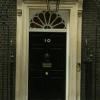I'm not sure though how audiences might react to a Bond movie which was a transparently obvious attempt to re-create, say, the Bond films of the 1960s, right down to being set in that decade. You can still re-create that approach if you wanted to without having to go back in time to do it.
I don't see any need to re-invent the wheel. We already have six Bond films set in the 60s. I understand what the supporters of this idea are hoping for, but even if a period mini-series were to happen, there's no guarantee that it would be any more faithful to the source material than say, DAF or LALD.
^^ These are valid criticisms, but I think slightly miss the point, and the opportunity. Also, we are talking TV, not film. Something with the scope of a Mad Men or Game of Thrones.
The idea is not about re-creating the milieu or vibe of the 1960s Bond films. For starters, the first seven (arguably eight) Bond books were set in the 1950s, not the 1960s. The ‘50s is a very different period to the ‘60s with a Europe still reeling from the recent World War. Le Carre’s classic Smiley novels, and The Spy Who Came in From the Cold, are all set in the 1960s and informed by that time, but the beginning of Bond is in a much younger Cold War period and the stories are very definitely imprinted with a strong post-War vibe.
This is the period of the Korean War (1950-53), the Hungarian Revolution (1956) and the Suez Crisis (1956-57). The Cold War was very real but not quite yet at the heightened levels we saw in the ’60s.The first sections of the Berlin Wall were not laid until 1961, Bay of Pigs was 1961, as was the advent of what became the Vietnam War, and the Cuban Missile Crisis hit in 1962. And then there are the popular cultural factors.
Such an immediate post-War setting of war veterans and European reconstruction brings very different politics, music, culture, fashion, technology, daily headlines and social concerns to those of the Sixties. (See Dennis Potter’s Lipstick on Your Collar, which is set during the Suez Crisis, for a sense of the British establishment at the time). Europe was in ruins and mired in post-War reconstruction efforts, an emerging battle ground for the emerging super powers. The US was just starting to exercise its new global influence while the USSR was scrambling (not all that successfully and somewhat clumsily) to build its own sphere of influence. The UK, while impoverished from the War, was still in possession of an Empire (excluding the former subcontinental posessions). While the British Labour Party had championed decolonisation from 1945, the Conservatives were in power from 1951 and were determined to maintain British global influence, and so were very hawkish over Suez, Malaya etc.
I just see so much potential for the original novels to be dramatised in this setting, in their correct order. A sober interpretation, faithful to the books and the time period. Taking Mad Men as an example, we see it is possible to deliver a TV show where the evolving style, technology and cultural norms of each historical year covered in a show can be fastidiously followed as they unfolded and developed in real life. Just as Mad Men showed us with high fidelity how the early 1960s evolve and develop from a staid and conservative hangover of the ‘50s to the Swinging Sixties and then finally transitioning to the early 1970s, so we could see a similar development in Bond and his times.
1950s Fleming Novels:
- 1953 Casino Royale
- 1954 Live and Let Die
- 1955 Moonraker
- 1956 Diamonds Are Forever
- 1957 From Russia, with Love
- 1958 Dr. No
- 1959 Goldfinger
- 1960 For Your Eyes Only (short stories)
1960s Fleming Novels:
- 1961 Thunderball
- 1962 The Spy Who Loved Me
- 1963 On Her Majesty's Secret Service
- 1964 You Only Live Twice
- 1965 The Man with the Golden Gun
- 1966 Octopussy and The Living Daylights (short stories)







